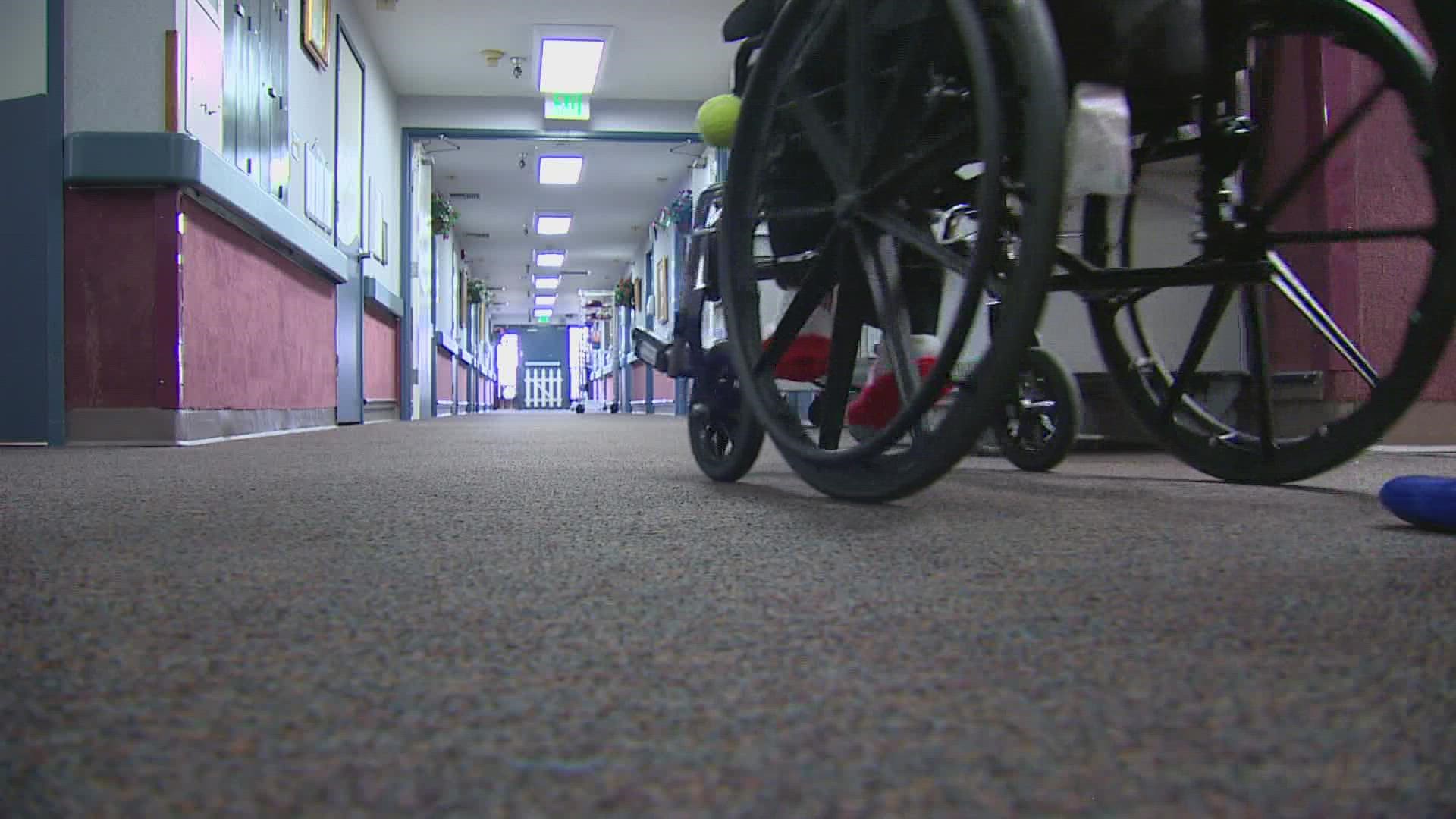OLYMPIA, Wash. — The delay of a controversial long-term savings law means millions of Washington residents will not see new automatic paycheck deductions coming at the beginning of 2022.
But thousands of state workers and higher education employees will still have funds taken out of their paychecks.
According to governor spokesperson Tara Lee, despite Gov. Jay Inslee's order last week to delay the law, employers, public and private are still required to collect the premiums from employees’ wages.
Lee said while private companies that don’t collect the funds will not be penalized, as an employer, the state "will follow the law until it is changed. The only way to prevent collections from being legally required in January would be to change the underlying law before then.”
Lee said any funds collected by the state would be held in reserve pending expected action by legislators next year.
On January 1, employees were supposed to start paying into the Washington Cares Fund, an account established by a 2019 law to provide funds for an individual’s long term care.
But after concerns were raised about the law, Inslee ordered the state’s Employment Security Department to hold off on collecting funds to give lawmakers time to revisit, and perhaps change the law when they return to Olympia for the 2022 legislative session in January.
Under the law, someone making $65,000 a year would pay about $435 a year into their account, which could give a worker up to just over $36,000 to use when they get older, according to the state’s Employment Security Department.
Critics have said participation in the fund should be optional, and the accounts won’t provide nearly enough money for substantial long term care.
Other concerns cited the inability for someone to take their savings with them if they move out of state. The funds are lost when someone moves out of the state of Washington.
The state has approved approximately 450,000 exemptions, but only to those who have approved, existing long-term care savings accounts.
Republican party leaders from the state House and Senate Wednesday called on Inslee to call lawmakers back to Olympia prior to the start of the year to make necessary changes to the bill prior to 2022, or the start of the next legislative session January 10.
Senate Majority Leader Andy Billig, D-Spokane, did not think that would happen, but he said improving the 2019 law is one of his top priorities.
"Once we got closer to implementation, we got more feedback and there was consensus that we should make some changes,” said Billig. “This still makes a lot of sense for Washington state and for all Washingtonians, but we want to make sure we get it exactly right."
Billig said lawmakers and members of a Long-Term Care Commission will explore allowing those who live out-of-state and work in-state to be able to opt-out of the plan, those close to retirement might be able to receive more benefits, and Billig said the issue of taking someone’s savings to another state will be discussed.
He hoped the payroll deduction rate, .58 of a percent of someone’s income, would remain in place.
”We don't want the premiums to go up. And that's one of the reasons why it makes sense to have a little more time to be able to make these changes in a really thoughtful way,” said Billig.
Despite the delay, and talk of reform, former state Rep. Cary Condotta is gathering signatures for an initiative to make the law optional.
”The train wreck that it started out to be has just gotten worse,” said Condotta, “It needs to be removed or remodeled completely from the ground up.”
Condotta said he has until December 30 to turn in signatures to the Secretary of State’s office.
He said supporters have not yet reached their signature total goal.

